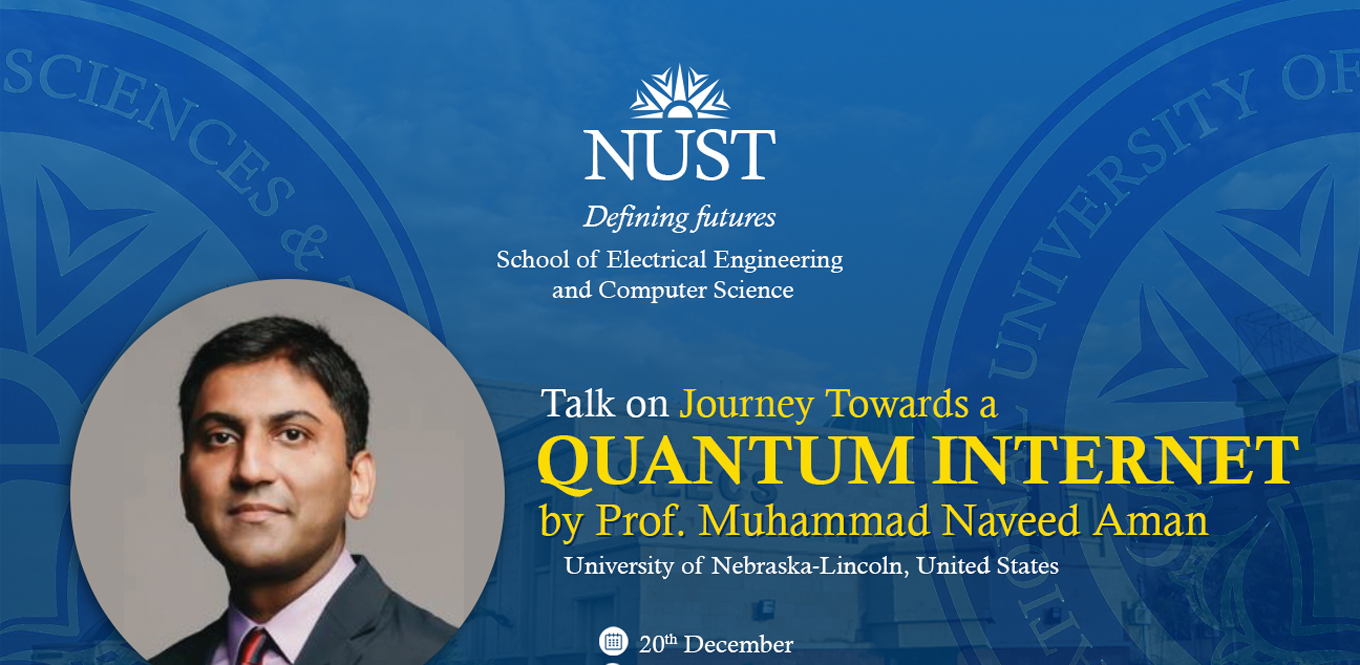Journey Towards a Quantum Internet by Dr. Muhammad Naveed Aman
-Muhammad Naveed Aman is an Assistant Professor in the School of Computing at the University of Nebraska-Lincoln, USA. He previously served as a senior research fellow (research assistant professor) at the National University of Singapore where he has been given an honorary lifetime alumni status. He has also previously served on the faculty of National University of Computer and Emerging Sciences Pakistan. He received the B.Sc. degree in Computer Systems Engineering from KPK UET, Peshawar, Pakistan, M. Sc. degree in Computer Engineering from the Center for Advanced Studies in Engineering, Islamabad, Pakistan, M. Engg. degree in Industrial and Management
Engineering and Ph.D. in Electrical Engineering from the Rensselaer Polytechnic Institute, Troy, NY, USA in 2006, 2008, and 2012, respectively.
Dr. Aman has published over 50 research papers in prestigious conferences as well as high impact factor journals including IEEE Globecom, IEEE ICC, IEEE DSC, ACM AsiaCCS, IEEE IoT Journal, IEEE Systems Journal, IEEE Communications Standards Magazine, and Computers and Electronics in Agriculture. He has also co-authored two books on hardware security with reputed publishers. He is a regular reviewer for several IEEE and Elsevier journals and has also served as a guest editor for some special issues. With a cumulative impact factor of over 200, an h-index of 20, and i10-index of 26, Dr. Aman has also written successful project proposals obtaining grants for around $2M. His research interests include IoT and network security, hardware systems security and privacy, wireless and mobile networks and stochastic modelling. He has also worked in many interdisciplinary areas including power systems, optimization, and control systems. One of Dr. Aman’s proposals on the security of Quantum Internet got funded last year at the National University of Singapore. He was recently also included in the list of top 2% scientists published by Elsevier


